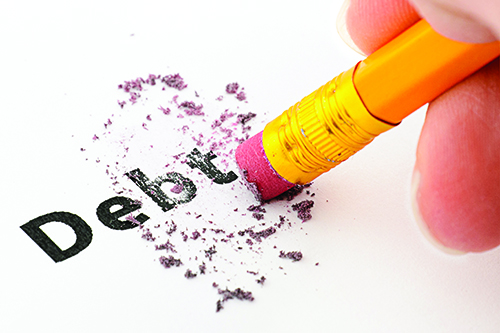Getting to shore safely after being on the rough debt seas

The festive season has come and gone and the goal of starting the year debt free and growing your savings in 2014 can seem like a distant lighthouse, with outstanding December accounts and January bills piling up.
Historically FNB customers have spent 20% more in December than their average for the rest of the year. Although December 2013 spending still shows an increase compared to the rest of the year, FNB recorded a lower percentage increase compared to the previous trend. Despite this, it is likely that many consumers are still feeling the sting in the aftermath of their increased December spend.
South Africa’s Minister of Finance and Minister of Trade and Industry’s concerns regarding levels of consumer debt, comes at a time when many citizens are faced with the dilemma of juggling payments to survive the coming months. Many default on making their monthly contribution towards their savings and policies or resort to taking out cash loans just to cover everyday living costs.
Johan Maree, CEO of FNB Credit Card, strongly advises against this.
“Buying on your account or taking out cash loans to service small shortfalls can quickly snowball into bigger problems. Making your minimum payments of various accounts becomes an increasingly harder task if you are continuously spending more on credit to make ends meet. Interest on additional loans can be so high that you will be wasting money on interest when you could have started paying off some of your debt.”
However, knowing this does not make payments in January any easier. How then does one navigate through the stormy seas of debt? Maree suggests the following tips:
Take a deep breath and assess your debt
The mere thought of debt is often enough to get you into a flat spin. Take a breath and assess your debt in terms of minimum payments and highest interest. Although it is ideal to always pay more than your minimum payment, the first few months of the year might be the right time to stick to the bare basics.
“It is better to ensure that you make minimum payments on all your outstanding accounts than to miss or fall short on payments. Adding up the additional payments that you normally make could result in just enough to cover the higher monthly instalments that you face,” suggests Maree.
Always aim to pay the highest interest bearing debt off first without falling short on other payments. Once this is paid off you will be able to increase the instalment on other high interest bearing debt to pay the left over debt off faster and at more competitive interest rates.
Shop smartly and plan ahead
Keep your eye out for store specials and compare prices to keep your additional expenses to the minimum.
“We become so accustomed to using a certain brand that we often miss out on inexpensive brands that are just as effective. The early year money crunch is an ideal time to explore new ways of bringing your living expenses down,” suggests Maree.
In addition to looking for the best deal, record every expense for the month. Include groceries, clothing, electricity and on-the go expenses such as takeaways, lunches and dinners so that you can gauge where there is space to cut down on spending and clear your debt.
If all else fails
Speak to your bank sooner rather than later to discuss the options available if you suspect that you might run into problems with meeting your minimum payments. Consolidating your debt allows you to merge retail store debt, short term loans, personal loans and other credit card debt into one account.
“The pros of debt consolidation are that it allows you to pay your debt off over a longer period, at a lower interest rate. It also makes managing debt easier as all debt is housed in one account. However, debt consolidation will not help customers who spend above their means to curb their spending and save more – in order to do this a deliberate effort to foster better spending and saving habits has to be made,” advises Maree.
Don’t feel alone – the majority of South Africans have some or other form of debt – whether it is retail store accounts, a home loan or vehicle finance. The crux of the matter is the realisation that the credit limit that you are eligible for is a maximum limit and that having maxed out your credit facilities on a month to month basis could be the start of a downward debt spiral.
“Don’t spend your maximum credit amount just because it has been awarded to you. Take control of your finances early in the year by making sure you know what you are able to comfortably afford and stick to it,” concludes Maree.




